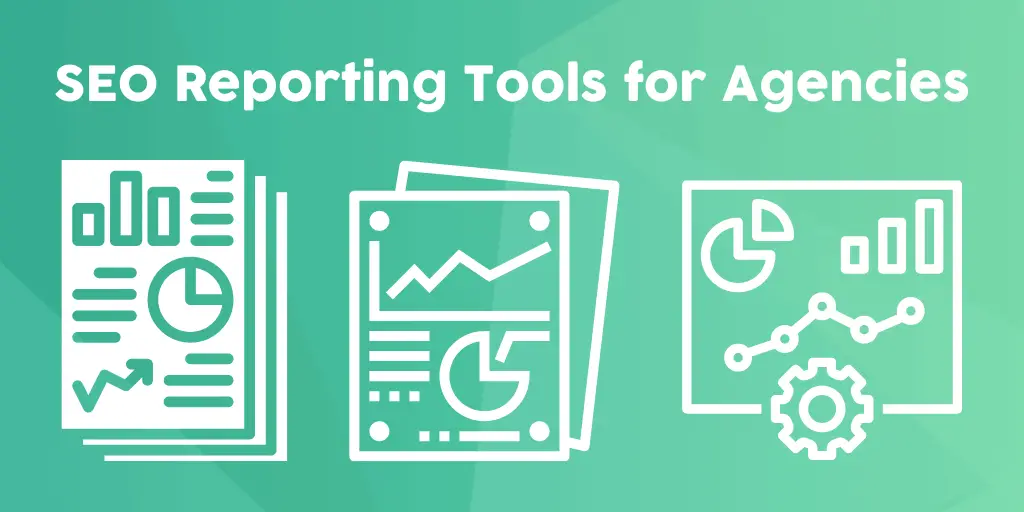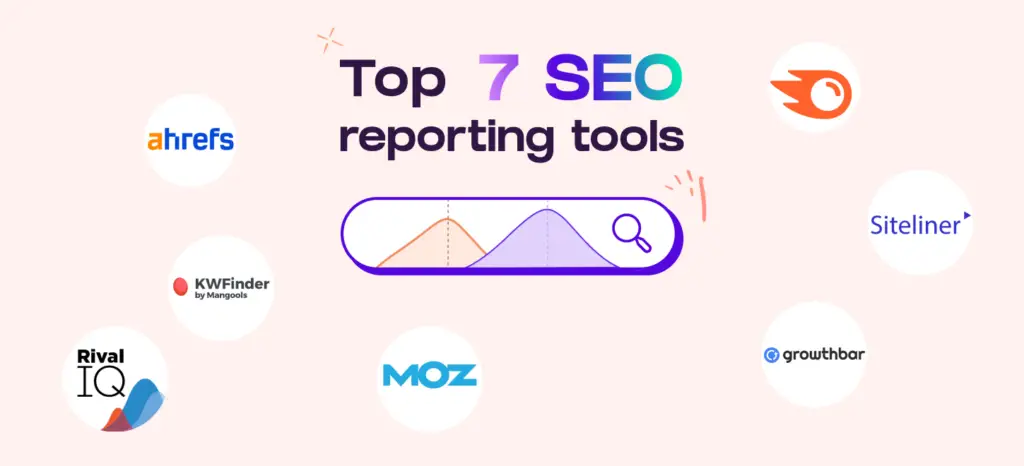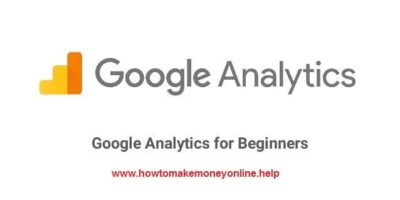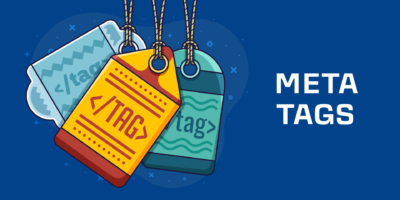Looking for the perfect SEO reporting tool for your business? Look no further! This comprehensive guide will walk you through the step-by-step process of finding the ideal tool to meet all your SEO reporting needs.
Keywords are crucial when optimizing your website for search engines, and having the right reporting tool can significantly affect your website’s performance. From tracking keyword rankings to analyzing organic traffic, an effective SEO reporting tool provides valuable insights and data to help you make informed decisions.
However, with so many options available in the market, it can be overwhelming to choose the right one. That’s why we’ve researched for you.
In this guide, we’ll explore the key features to consider when selecting an SEO reporting tool, provide you with a list of top tools that have proven their worth, and offer expert tips to optimize your reporting process. Don’t settle for subpar reporting tools. Let us empower you with the knowledge to find the perfect SEO reporting tool for your business. Get ready to take your SEO game to new heights!
As a blogger in this game for a decade, I’ve seen the SEO landscape transform dramatically. What worked a few years ago may not cut it today. Staying on top of your SEO performance is not just about keeping things afloat – it’s about proving your value. That’s where SEO reporting tools step in as your ultimate ally.
What Exactly Are SEO Reporting Tools?

SEO reporting tools are software designed to collect, analyze, and present data on your website’s search engine performance. They go far beyond showing you basic ranking numbers. These tools are like x-ray machines for your blog, revealing essential insights into:
- Keyword rankings: Where you shine and where there’s room for improvement.
- Backlinks: The quality and quantity of websites linking to yours impact your authority.
- Organic traffic: How many visitors are finding you through search engines?
- Technical SEO health: Issues that might be hindering those search engine crawlers.
- Competitor analysis: See how you stack up against others.
Why Your Business Needs an SEO Reporting Tool
SEO reporting tools provide critical advantages directly impacting a business’s online success. They offer:
1. Data-Driven Decision Making:
SEO reporting tools transform raw data into actionable insights about your website’s performance. This allows for informed decisions on where to focus your SEO efforts, optimizing content strategies and technical structures, and maximizing returns on investment.
2. Technical Issue Identification:
Robust SEO reporting tools act as diagnostic scanners for your website’s health. They identify factors impeding your rankings, such as crawling errors, slow site speed, mobile responsiveness issues, broken links, or incorrect metadata. Resolving these technical obstacles is essential for favourable search engine visibility.
3. Strategic Growth Opportunities:
Comprehensive reports often reveal unexpected insights. You might discover that your website ranks well for a keyword variation you hadn’t initially targeted. This valuable information fuels strategic expansion opportunities, enabling you to gain traction in related market segments.
4. Justifying Marketing Expenditure:
Demonstrating the return on investment (ROI) for any marketing initiative is crucial. SEO reporting tools provide the hard metrics needed to showcase SEO success. By correlating traffic growth, keyword rankings improvement, increased lead generation, and higher conversion rates with SEO activities, you make a strong case for continued and even increased investment.
5. Proactive Problem Resolution:
Search engine algorithms and the competitive landscape are dynamic. SEO reports provide ongoing monitoring, allowing you to pinpoint potential dips in performance before they become major setbacks. Addressing these issues quickly helps maintain or improve your site’s authority and ranking.
6. User Experience Insights:
SEO and UX go hand-in-hand. SEO reports offer valuable insights into user behaviour on your website. Metrics like bounce rate, time-on-page, and conversion paths can expose potential user experience problems. These insights allow for strategic updates that enhance usability, increase user satisfaction, and boost your search engine rankings.
Key Takeaways
Investing in an SEO reporting tool is an investment in the future of your business. Regular and insightful reporting empowers you to:
- Optimize your search engine strategy based on concrete performance data.
- Proactively maintain your site’s technical health, ensuring search engine favorability.
- Identify and act upon new opportunities to increase organic reach and engagement.
- Provide stakeholders a clear picture of SEO results, demonstrating value and justifying continued support.
Key Features to Consider in an SEO Reporting Tool
Let’s break down the essential features that should form the core of your SEO reporting tool decision-making process:
- Comprehensive Keyword Tracking:
- Rank Tracking: Your tool must monitor your website’s rankings for targeted keywords, showing your position in search engine results pages (SERPs).
- Multiple Search Engine Tracking: Look for tools that track major search engines (Google, Bing, etc.), and also options to include region-specific ones as needed.
- Local SEO Tracking: Features designed for local businesses to track their visibility in local map listings and localized search results are crucial if you have a local focus.
- Historical Trend Reports: The ability to track your keyword ranking progress over time visually represents your SEO efforts.
- In-Depth Backlink Analysis:
- Backlink Profile: See which sites link to yours, allowing evaluation of their quality and relevance.
- Backlink Authority Metrics: Most tools offer domain authority metrics (like Moz’s Domain Authority or Ahref’s Domain Rating) to assess the strength of linking websites.
- New vs. Lost Backlinks: Monitoring changes to your backlink profile reveals potential issues (losing valuable backlinks) or successful outreach efforts (gaining new ones).
- Anchor Text Analysis: See the most common words to link to your site, revealing how others perceive your content.
- Technical SEO Auditing:
- Crawlability: Discover whether search engines can easily ‘crawl’ (analyze and index) your website. Tools will reveal any issues that may hinder search bots.
- Site Speed Analysis: Page load speed is a ranking factor. Your tool should flag potential bottlenecks slowing your site down.
- Mobile-Friendliness: Get reports pinpointing mobile responsiveness issues, ensuring your website is optimized for different devices.
- Structured Data Check: If you use schema markup, the tool should analyze its implementation and correctness.
- Duplicate Content Checks: Detect duplicate content, which can negatively impact rankings.
- Robust Reporting & Visualization:
- Customization: The ability to tailor reports, including the metrics most important to your business, and the ability to present them in a way that’s visually appealing to your audience.
- White-labeling: Agency-focused tools often allow you to brand reports with your own logo and colors.
- Automated Report Scheduling: Save time by scheduling reports to be generated and sent regularly (weekly, monthly).
- Competitor Analysis:
- Competitor Keyword Tracking: Uncover what keywords your competitors rank for, identifying content gaps and opportunities to outrank them.
- Competitor Backlink Analysis: Analyze their backlink profiles to understand their link-building strategies and benchmark your efforts against the industry.
- Comparative Reporting: Generate side-by-side comparisons to highlight your strengths and weaknesses relative to the competition.
Additional Considerations:
- Integrations: Does the tool seamlessly integrate with other marketing tools you use (Google Analytics, email marketing platforms, etc.)?
- API Access: For advanced users, API access allows you to pull raw data for custom analysis or in-house reporting solutions.
The key is prioritizing the features most critical to your business goals and SEO strategy.
Top SEO Reporting Tools in the Market

Let’s dive into some of the most popular and well-respected SEO reporting tools on the market, focusing on their unique strengths and functionalities:
1. SEMrush:
An industry giant recognized for its comprehensive toolkit and in-depth analysis capabilities. Key strengths of SEMrush include:
- Extensive keyword Research: Find new keywords, analyze their potential, and track your rankings over time.
- Detailed Backlink Analysis: Evaluate your backlink profile, identify quality backlinks, and discover opportunities to build your link authority.
- Robust Site Audits: Get a thorough health check of your website’s technical SEO, helping you fix any issues hindering your rankings.
- Advanced Competitor Research: Spy on your competitors, analyze their strategies, and identify gaps you can exploit to increase your own visibility.
2. Ahrefs:
Renowned for its exceptional backlink analysis capabilities, Ahrefs is another powerful choice. It excels in areas like:
- Comprehensive Backlink Analysis: Discover who links to you, assess link quality, and monitor backlink growth over time.
- Keyword Research and Tracking: Identify lucrative keyword opportunities, estimate their difficulty, and track your progress.
- Content Explorer: Find high-performing content in your niche, analyze what makes it successful, and refine your content strategy.
- Site Audit Functionality: Identify common technical SEO issues and receive guidance on how to fix them.
3. Google Search Console:
While not a standalone reporting platform, Google Search Console holds a treasure trove of data directly from the source. It’s a must-have tool alongside a paid option, offering insights on:
- Keywords Driving Traffic: See the exact search queries bringing users to your site, helping you optimize content and identify new keyword opportunities.
- Technical Site Health: Identify crawl errors and mobile-friendliness issues and receive alerts for indexing problems.
- Backlinks from Other Sites: Get a partial picture of your backlink profile as seen by Google.
4. Moz Pro:
Moz focuses on the fundamentals of SEO, offering a well-rounded toolkit that is exceptionally user-friendly.
- Accurate Site Audits: Quickly identify technical issues hurting your rankings and provide clear, actionable recommendations for improvement.
- Reliable Keyword Tracking: Track your rankings for specific keywords and monitor improvements over time.
- Link Explorer: Analyze your backlink profile and explore link-building opportunities.
5. Tool4SEO:
Tool4SEO is a fundamental Free SEO toolkit for Digital Marketers, Web Developers and Content Creators, offering a well-rounded, exceptionally user-friendly toolkit.
- Key strengths: Tool4SEO stands out with its comprehensive free feature set, encompassing keyword research, backlink monitoring, competitor analysis, site audits, and social media management.
- Ideal for: Agencies and businesses seeking an all-in-one SEO platform with diverse capabilities.
6. SEO PowerSuite:
- Key strengths: SEO PowerSuite is a desktop-based software suite offering tools for keyword research, rank tracking, on-page optimization, and backlink analysis. It’s recognized for its in-depth features and customizable reports.
- Ideal for: Experienced SEO professionals who prefer a desktop solution with advanced capabilities.
7. Mangools:
A popular and affordable suite of SEO tools, Mangools covers the essentials for bloggers and smaller businesses. Its strengths include:
- SERPChecker: Analyze search engine results pages (SERPs) for your target keywords and assess your position compared to competitors.
- SiteProfiler: Gain insights into the authority and backlink profile of websites, including yours and your competitors.
- KWFinder: Discover keywords with high search volume and low competition.
The ‘best’ SEO reporting tool depends on your specific requirements and budget. Factors to consider include the size of your website, the complexity of your SEO strategy, the level of technical expertise within your team, and the specific metrics or features you deem essential.
Before investing in a tool, taking advantage of free trials or demos is highly advisable. This will give you a feel for the user interface and ensure the tool aligns perfectly with your business needs.
Comparison of Different SEO Reporting Tools
Evaluating SEO reporting tools involves considering their key feature sets, strengths, and potential limitations. Let’s break down some popular choices:
| Tool | Strengths | Potential Limitations | Best Suited For |
|---|---|---|---|
| SEMrush | Extensive feature set, powerful competitor analysis, excellent keyword research | It can be overwhelming for beginners, with a higher price point | Experienced marketers and businesses needing in-depth data |
| Ahrefs | Exceptional backlink analysis capabilities, strong keyword research tools, thorough competitor insight | Less focus on technical site audits, which can be pricey | Link-building-focused bloggers, those prioritizing competitor analysis |
| Google Search Console | Direct source data from Google, free, valuable technical SEO insights | Limited reporting features need pairing with a paid tool | Everyone wanting to track core SEO metrics directly from Google |
| Moz Pro | User-friendly interface, well-rounded toolkit for rank tracking, audits, and backlink analysis | Depth of analysis may not rival SEMrush or Ahrefs | Businesses seeking ease of use alongside key reporting features |
| Mangools | The budget-friendly option covers basic SEO essentials | Less comprehensive than higher-end tools, lacks some advanced features | Bloggers and small businesses on a tight budget |
Comparison Framework
When evaluating tools, consider these key areas:
- Features vs. Your Needs: Don’t pay for features you won’t use. Prioritize the metrics and reports most important to your SEO strategy. Do you focus heavily on backlinks? Or is technical health a primary concern?
- Ease of Use: Can you comfortably navigate the interface? Does the tool provide the guidance needed for your team’s expertise?
- Price: Ensure the tool fits your budget and offers value for the cost. Consider the potential scalability of pricing as your needs grow.
- Customization: Do the reports offer the flexibility to highlight the KPIs important to your business or clients?
- Integration: Does the tool play well with your other marketing analytics platforms? Centralized data makes for more comprehensive insights.
Beyond the Basics
Additional factors influencing your decision might include:
- Support: Does the provider offer readily available help if you have questions?
- Free Trials: Many tools have trial periods, which take advantage of hands-on evaluation.
- Community & Resources: Do they have an active community or strong knowledge base to provide learning support?
By comparing your needs, budget, and the specific features of each tool, you’ll be well-equipped to find the perfect SEO reporting partner for your business growth!
Factors to Consider When Choosing SEO Reporting Tool

Selecting the right SEO reporting tool involves aligning features with your business needs and practical considerations. Here’s a breakdown of key factors:
1. Alignment with Your SEO Goals and KPIs:
- Traffic Focus: If your primary aim is boosting website traffic, prioritize tools with comprehensive keyword ranking, traffic analysis, and insightful competitor data.
- Backlink Building: For backlink-focused campaigns, ensure the tool’s strength lies in detailed backlink analysis, helping you identify quality backlink sources and monitor existing links.
- Technical SEO: If fixing technical obstacles is your primary aim, look for tools with in-depth technical audits that pinpoint site speed issues, crawl errors, metadata problems, and mobile-friendliness.
- Local SEO: For businesses serving a local market, consider tools that offer local ranking tracking, map listing analysis, and local competitor monitoring.
2. Website Size and Complexity
- Small Blogs or Simple Sites: Basic SEO reporting tools with keyword tracking and simple audits will often suffice. However, choose one that leaves room for future scaling.
- Large Websites & E-commerce Platforms: These often need enterprise-level tools offering advanced rank tracking across thousands of keywords, thorough technical audits, and the ability to handle data complexity.
3. Your Technical Expertise
- DIY Approach: If you (or your team) have strong SEO knowledge, tools with greater customization, in-depth analysis, and flexibility may be the best fit.
- Beginner-friendly: If technical SEO is not your forte, prioritize tools with clear dashboards, user-friendly report generation, and helpful support resources.
4. Budget Constraints
- Cost Spectrum: SEO reporting tools have a wide price range, from freemium models with basic functionality to high-end enterprise solutions.
- Free vs. Paid: Free solutions can be a starting point but often lack crucial features or have data usage limits. Striking a balance between features and affordability is critical.
- ROI Focus: Factor in the potential ROI gain from the SEO tool. A paid tool that helps significantly enhance results can easily justify its cost.
5. Integration with Other Tools
- Marketing Ecosystem: If the SEO reporting tool smoothly integrates with your existing analytics, social media management, or CRM platforms, it streamlines your workflow.
- Data Consolidation: Integrating the tools provides a more holistic understanding of how SEO efforts fit your marketing strategy.
6. Reporting and Visualization
- Transparent and Accessible: SEO reports should be easy to understand, even for non-experts.
- Customization: The ability to tailor reports, choose specific metrics, and apply your branding is ideal for tailored reporting to clients or leadership teams.
- Visual Appeal: Graphs, charts, and visual elements help convey data quickly and effectively.
- Customer Support: Good support is valuable, especially when implementing a new tool.
- Free Trials: Test the tool with your actual data before committing.
Important Note: Don’t simply go for a feature-rich tool; instead, choose one that best suits your current SEO needs, skill set, and budget and provides potential for scalability.
Integrating SEO Reporting Tool into Your Business Workflow
The mere acquisition of an SEO reporting tool won’t automatically improve your business performance. To reap its full benefit, strategic integration is vital. Here’s how:
- Define Your KPIs: Before implementing the tool, be crystal clear on the metrics that best define your SEO success. Are you most interested in organic traffic growth? Keyword ranking improvements? Backlink acquisition? Lead generation? Your KPIs will steer the type of reports you’ll prioritize.
- Establish Reporting Cadence: Determine how frequently you need to generate reports. Weekly or monthly reporting is standard for tracking progress and staying agile. However, real-time alerts, available in many tools, are key for urgent issues like significant traffic drops or technical glitches.
- Assign Ownership: Clearly define who runs reports, analyses the data, and translates insights into actionable recommendations. This might be an in-house SEO specialist, a dedicated marketer, or an external agency partner.
- Team Education: Ensure those utilizing report insights understand the tool and how to interpret the data. Some tools offer training resources or webinars. This builds team confidence in leveraging reports for decision-making.
- Build Reporting into Your Processes: Integrate SEO reporting into your existing workflow. This could include:
- Regular SEO strategy meetings to discuss insights and refine tactics.
- Sharing reports with content teams to inform keyword optimization and content planning.
- Incorporating key metrics into broader marketing performance dashboards.
- Encourage a Data-Driven Mindset: Beyond the technical staff, foster a data-centric approach throughout your organization. Share relevant insights with stakeholders to show the direct impact of SEO on business goals. This cultivates appreciation and support for sustained SEO investment.
- Iterate and Adapt: SEO is ever-evolving. As your business grows or the SEO landscape changes, review your reporting workflow with these questions:
- Are we utilizing all the tools’ capabilities to meet our current needs?
- Are our KPIs still reflecting our strategic priorities?
- Are there reporting gaps that need to be addressed?
Additional Tips:
- Automation: Many tools allow for automated report generation and even scheduled delivery to relevant stakeholders. This saves time and ensures consistent reporting.
- Customization: Tailor your reporting dashboard to highlight the most critical metrics front and centre. Avoid data overload that distracts from key takeaways.
Integrating SEO reporting seamlessly into your workflow transforms data into fuel for continuous improvement, ensuring your business stays ahead in the online competition.
Cost Considerations for SEO Reporting Tool
Cost and functionality are significant factors when choosing an SEO reporting tool. Understanding pricing models and hidden costs helps you make the best decision for your business’s budget and needs. Consider the following:
- Freemium vs. Paid Subscriptions: Many tools have a “freemium” model, offering basic features for free. However, these often have limited keyword tracking, reporting, and analysis capabilities. Paid subscriptions unlock the full functionality and may be essential for more in-depth SEO work.
- Tiered Pricing: Most SEO reporting tools offer various pricing tiers, often based on the number of keywords tracked, websites analyzed, reports generated, or user seats. Carefully assess your needs to choose a plan that provides sufficient features without overpaying for unused power.
- Usage-Based Costs: Some tools, such as the number of tracked keywords or the volume of data analyzed within each tier, may have usage limits. Exceeding these limits can lead to extra charges. Be aware of these limitations to prevent unexpected costs.
- Contract Length: Evaluate whether a monthly or annual subscription model suits you better. Annual plans often come with discounts but require a greater upfront commitment.
- Integration Costs: Setup and integration fees may be associated if you aim to integrate your SEO reporting tool with other business dashboards and data analysis platforms.
- Training and Support: Consider whether the tool provider offers training resources or dedicated support. If your team requires onboarding or troubleshooting assistance, factor in any potential additional costs involved.
The ROI of SEO Reporting
The cost of an SEO reporting tool should be considered an investment. Remember, SEO is a long-term strategy. The right reporting tool can bring significant returns by:
- Increased Traffic and Conversions: As you refine your SEO strategy based on informed insights, you’ll likely see an increase in relevant website traffic and conversions. This translates directly to revenue growth.
- Reduced Costs: Efficient reporting can highlight inefficient spending on paid advertising or identify low-performing content that could be redirected for a more significant impact.
- Time Savings: Automated reports and dashboards save you the valuable time of manually collecting and analyzing data. This time can be refocused on strategic tasks.
Key Takeaways
- Choosing the right SEO reporting tool requires a balanced approach – considering the functionalities that matter to your business and the associated costs.
- Examine pricing models carefully and factor in potential added fees to forecast the total cost of ownership.
- Always weigh the cost of a tool against the expected ROI that comes with the ability to improve your website’s search rankings and attract more qualified traffic.
- Don’t hesitate to contact tool providers for demos or free trials to ensure the chosen tool delivers the value you expect for the price.
Conclusion
SEO reporting tools are essential for navigating the evolving digital landscape. They are more than just tools for tracking numbers—they offer a roadmap for achieving and maintaining online visibility. Businesses that prioritize SEO reporting invest in their long-term success.
Data-driven insights allow for continuous adaptation and optimization, improving website performance, strengthening customer engagement, and building brand authority.
Discover more from Digital Wealth Guru
Subscribe to get the latest posts sent to your email.









Comments